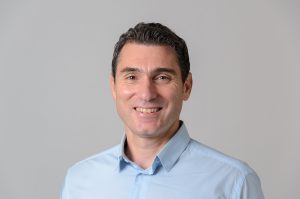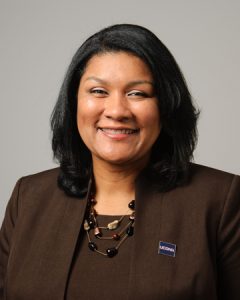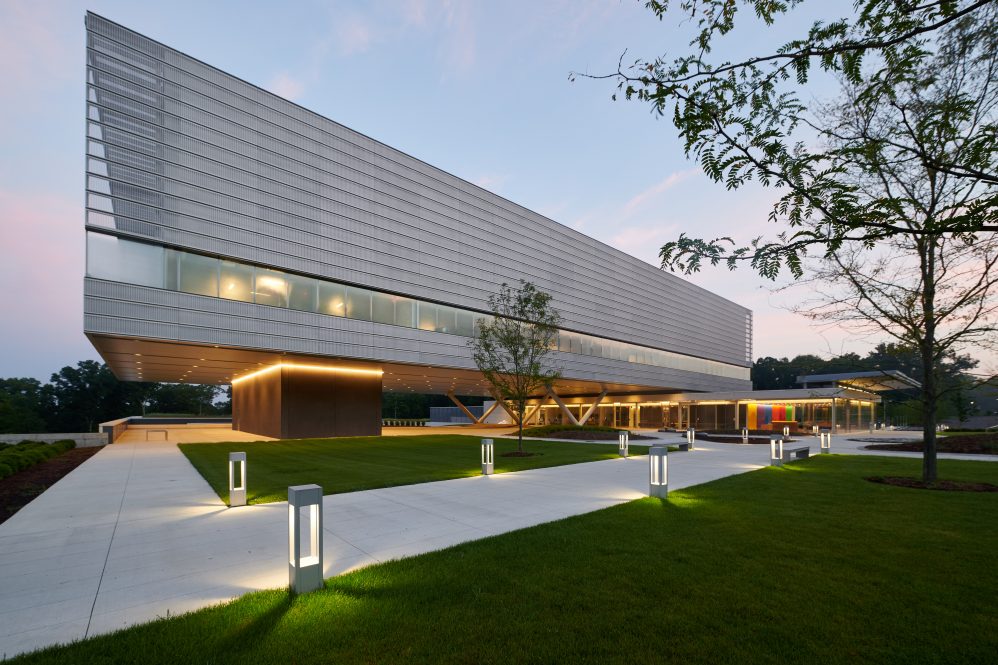UConn has announced new leadership changes for the University’s research enterprise, effective immediately.
Emmanouil “Manos” Anagnostou is now the interim Executive Director of the Innovation Partnership Building at UConn Tech Park. He was also named the interim Associate Dean for Research and Industrial Partnerships for the School of Engineering.
Additionally, Michelle Williams was promoted to Associate Vice President for Research Administration and Executive Director of Operations for the Office of the Vice President for Research. Her promotion is a permanent position.
“Dr. Anagnostou and Dr. Williams have made extensive contributions to UConn during their distinguished careers and extraordinary contributions to their respective fields of research,” says Pamir Alpay, interim vice president for research, innovation, and entrepreneurship. “Their leadership will provide a foundation as we continue to build to University’s reputation as a research powerhouse.”
The appointments wrap a series of leadership changes set in motion by former UConn President Andrew Agwunobi’s resignation. The UConn Board of Trustees appointed Radenka Maric as the University’s interim president in late January, resulting in her vacating her role leading the OVPR. Alpay – formerly the Executive Director of the IPB at the Tech Park – succeeded Maric, resulting in Anagnostou’s appointment.

As interim executive director of the IPB, Anagnostou will oversee UConn’s cutting-edge research and cross-disciplinary collaboration. The Tech Park serves as the University’s gateway for industry engagement, building relationships with collaborators across the public and private sectors to drive Connecticut’s economic competitiveness.
Anagnostou has been a UConn faculty member since 1999 and is a Board of Trustees Distinguished Professor and the Eversource Energy Endowed Chair in Environmental Engineering. He is currently the Executive Director of the Eversource Energy Center, where he leads a collaboration between UConn, utilities, and industry partners that helps mitigate storm hazards and increases the resiliency of the state’s electric grid. Additionally, he invented the Outage Prediction Model, a groundbreaking tool used by utility companies in several states to prepare and mitigate long power outages during damaging storms. He is also the applied research director at the at the Connecticut Institute for Resilience and Climate Adaptation.
“Our Tech Park partnerships have advanced technology, created many high-paying jobs, and provided researchers with the space and tools they need to turn concept into reality,” Anagnostou says. “With UConn as the engine fueling these collaborations, it’s exciting to see how much we can continue to positively impact our state.”
The OVPR is responsible for overseeing UConn’s $375 million annual research enterprise across all statewide campuses and UConn Health. Williams previously served as associate vice president for research development and she is UConn’s Research Integrity Officer for the Storrs and regional campuses, responsible for ensuring that the University is conducting research within the framework of the law and regulatory bodies. She will now have oversight of human resources and day-to-day operations within the OVPR.

A trained clinical psychologist, Williams came to Storrs 20 years ago as a faculty member in the department of Psychological Sciences, with a joint appointment in the Institute of Africana Studies.
She has served in several administrative roles including associate dean in the College of Liberal Arts and Sciences, director of clinical training for the doctoral program in Clinical Psychology, and as head of the Clinical Psychology division. Her research interests focus on the role of race and culture on psychological well-being, recovery from traumatic experiences, and cultural competence training.
“UConn is home to many brilliant, creative, and innovative researchers, scholars, and artists whose work enriches our institution and state,” says Williams. “The OVPR is committed to expanding opportunities to fund faculty and students as they advance their research and improve lives.”



